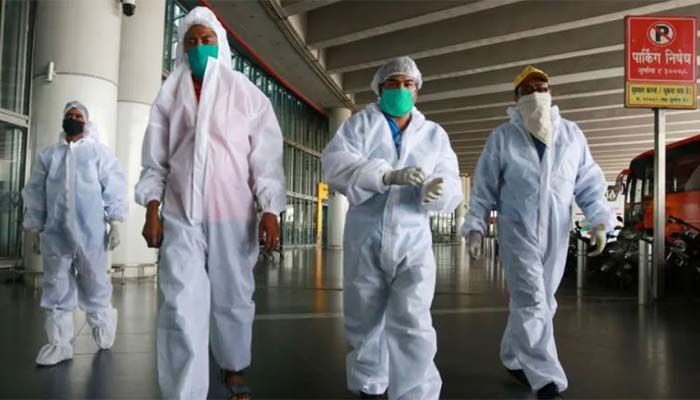
Desk Report
Publish: 24 Dec 2022, 09:50 pm

A photograph from 2020 of health workers at Kolkata airport || Photo: Collected
India’s Ministry of Health and Family Welfare has updated the guidelines for travellers coming into the country. While the ministry had mandated random testing of all flyers coming in, new rules will require all passengers to be thermally screened, and some to be tested on arrival.
COVID BF.7: Latest guidelines for travellers coming to India
No other country has announced any significant measures for travellers yet, though Singapore has beefed up protection for staff who are interacting with arrivals. All personnel, including those working at taxi, stands at the airport, will wear enhanced personal protective equipment, including N95 masks and face shields. Thailand's health officials have confirmed that New Year celebrations will go on as planned and that the situation is under control.
COVID in China: What we know so far
China is grappling with a possible COVID-19 comeback. The spike has been noted to take effect since China eased its zero-COVID restrictions last month.
These new measures in India come amid a spike in COVID cases in China, Brazil, Japan, US and Korea. As of Wednesday evening, 4 cases of the Omicron subvariant BF.7 have been detected in India. Of these, two cases have been reported from Gujarat, and one in Odisha. The most recent case is in Vadodara, where a person who arrived from the US tested positive for the BF.7 variant of coronavirus. Officials stress that there is no need for panic and that India’s COVID numbers are currently at their lowest since the pandemic began, and have been in a steady decline for the past 5 months. Govt of India has advised people to mask up in public places, although this is not mandatory yet._Agencies
Subscribe Shampratik Deshkal Youtube Channel
© 2024 Shampratik Deshkal All Rights Reserved. Design & Developed By Root Soft Bangladesh